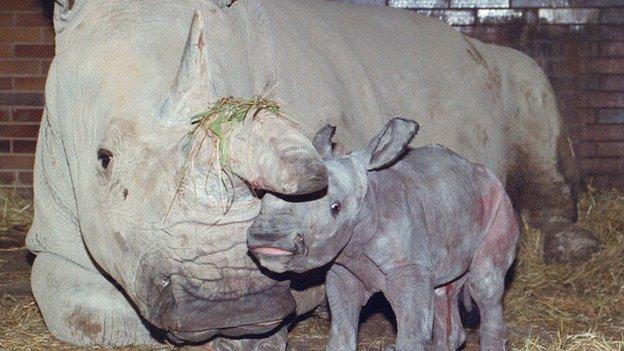Northern white rhinos: Longleat's rhinos help species avoid extinction
- Published
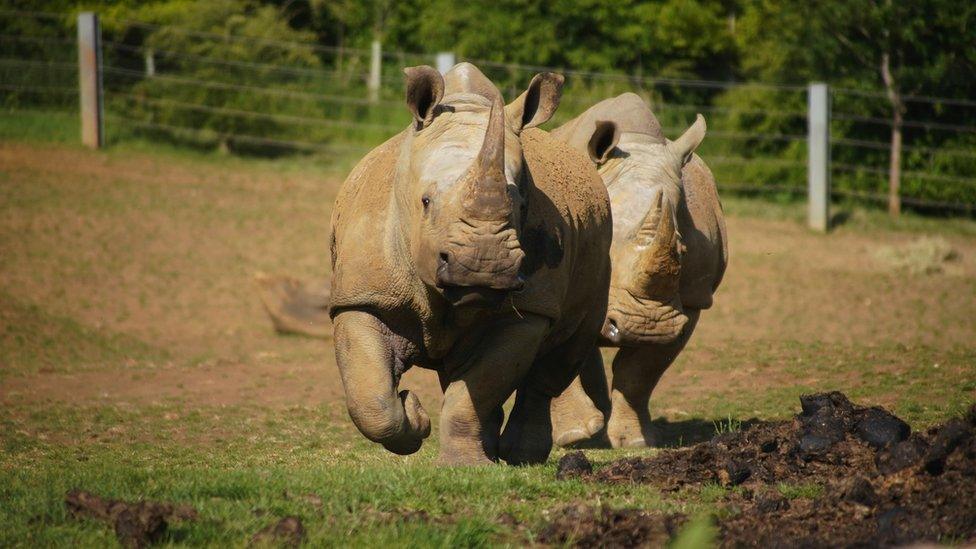
The three female rhinos at Longleat are southern white rhinos which are generally a little larger and hairier than the northern white rhino
Three female rhinos are "playing a crucial role" in helping to save the northern white rhino from extinction.
Scientists are collecting eggs from Razina, Ebun and Murashi at Longleat Safari Park, Wiltshire, to create viable northern white rhino offspring.
The Longleat southern white rhinos are being used in a "trial run for rhino IVF" which, if successful, will be repeated with northern white females.
There are only two northern white rhinos left and they are both female.
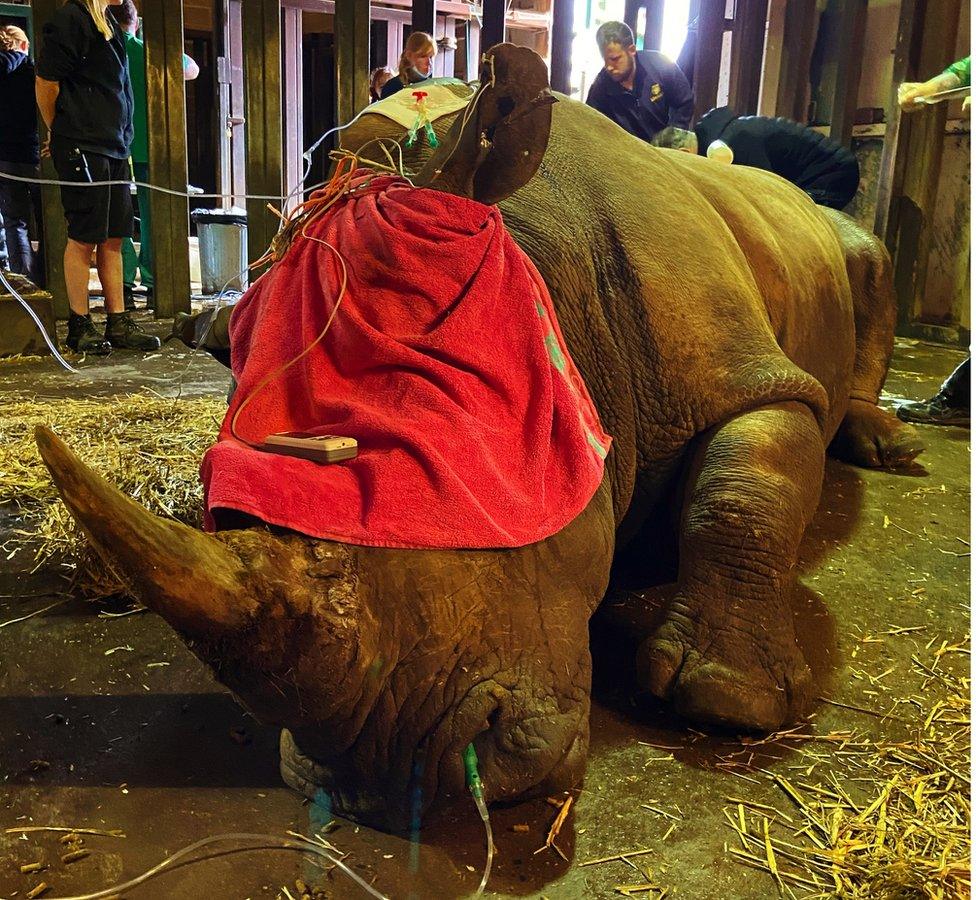
Widespread poaching and civil war have devastated northern white rhino numbers and they are now considered to be extinct in the wild
The eggs from Longleat will be fertilised in vitro in Italy before being flown to Kenya for implantation into southern white surrogates.
If the process is successful in creating southern white offspring, then existing northern white rhino embryos - fertilised using the eggs of the remaining two females and a deceased male - will be implanted into southern white surrogates, with the aim of creating a northern white rhino calf.
The process will take place at Kenya's Ol Pejeta Conservancy, where the two surviving northern white rhinos, Fatu and Najin, live under 24-hour armed guard.
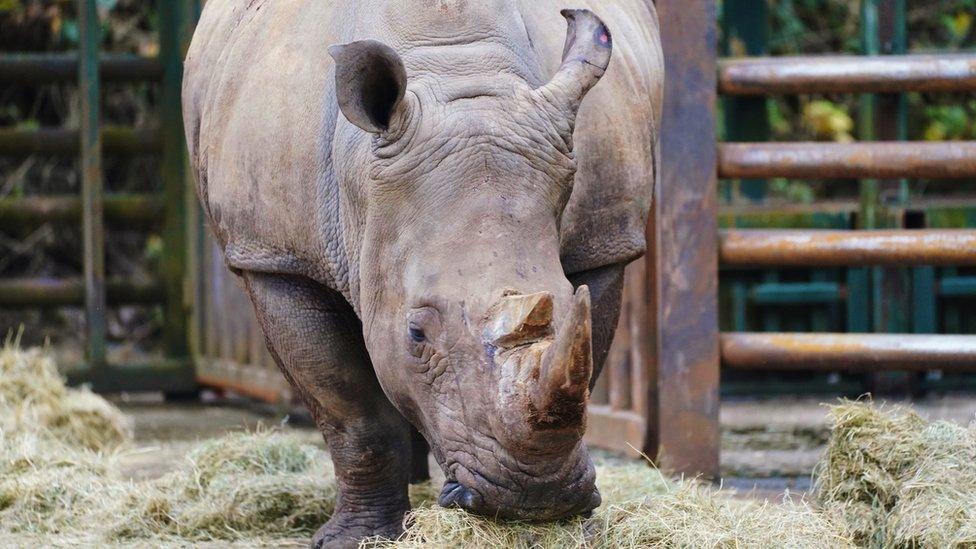
The long-term goal is to produce a healthy population of northern white rhinos
Lead keeper at Longleat Leah Russell said it was really important to be helping with the conservation project.
"At the moment we're donating eggs from these southern white rhinos to be part of a trial run for rhino IVF.
"Their eggs will be planted into other southern white rhino to see if it can produce actual rhino calves so that the same technology can be used with preserved northern white rhino embryos," she said.
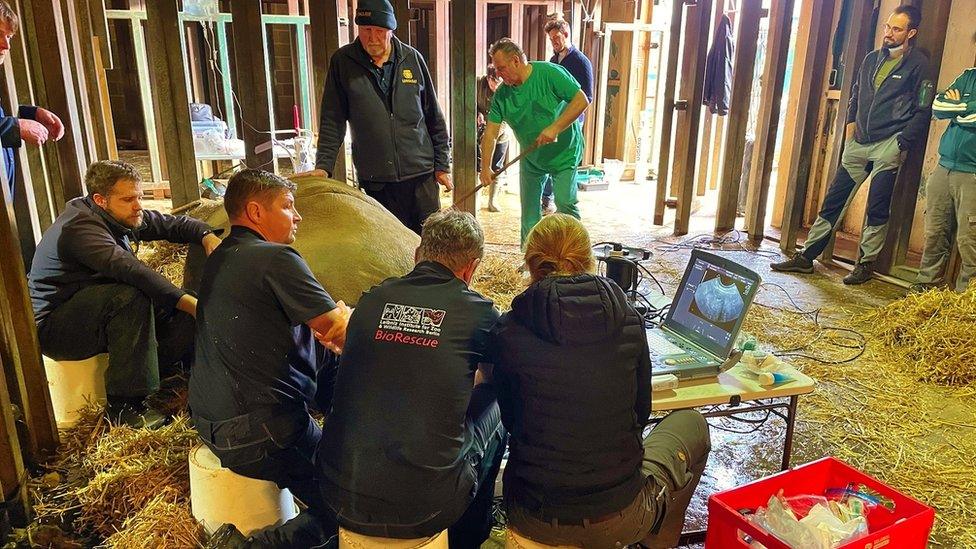
If the treatment proves successful it is hoped it could also be used to help boost numbers of other highly endangered species
The BioRescue research consortium is led by Prof Thomas Hildebrandt from the Leibniz Institute for Zoo and Wildlife Research (IZW) in Berlin.
Prof Hildebrandt said: "BioRescue is such a challenging and complex conservation science project. Therefore, it is really important that we are joined by competent international partners such as Longleat to master this ambitious mission."
Sudan, the last surviving male northern white rhino, died aged 45 from an age-related illness in March 2018.

Follow BBC West on Facebook, external, Twitter, external and Instagram, external. Send your story ideas to: bristol@bbc.co.uk , external
Related topics
- Published14 April 2020
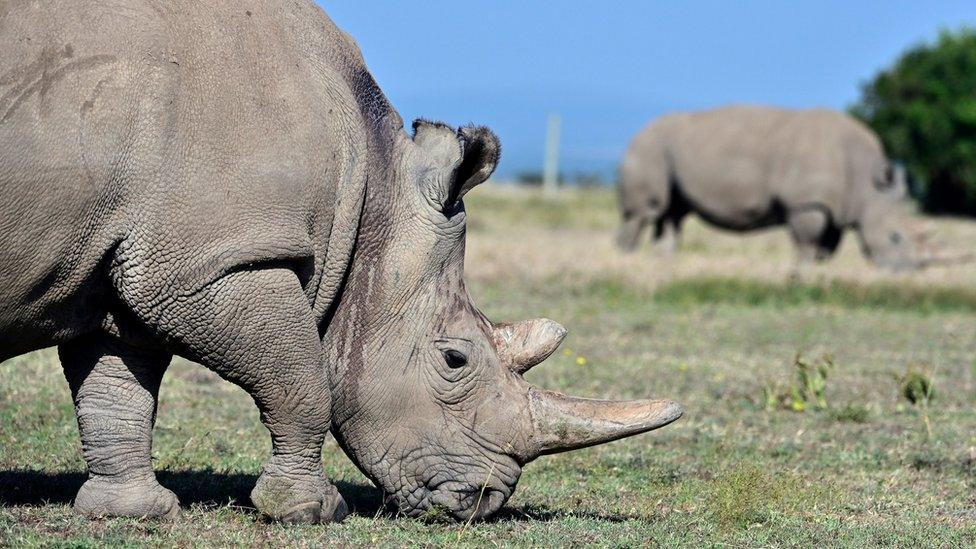
- Published20 March 2018
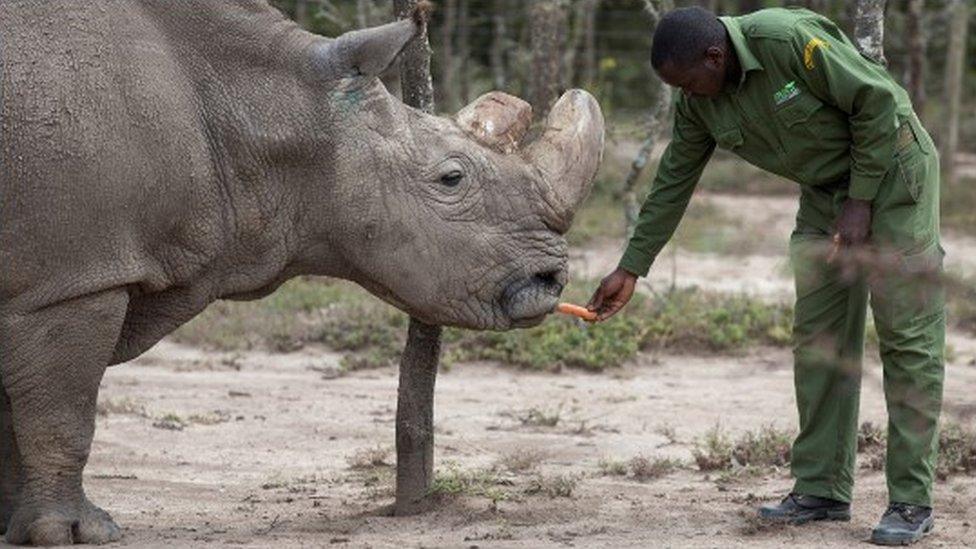
- Published17 December 2014
